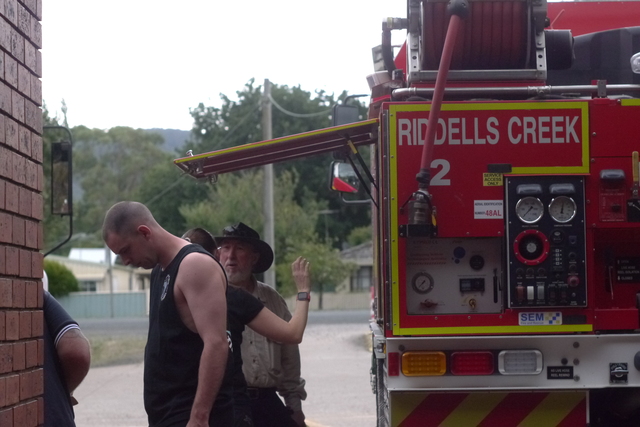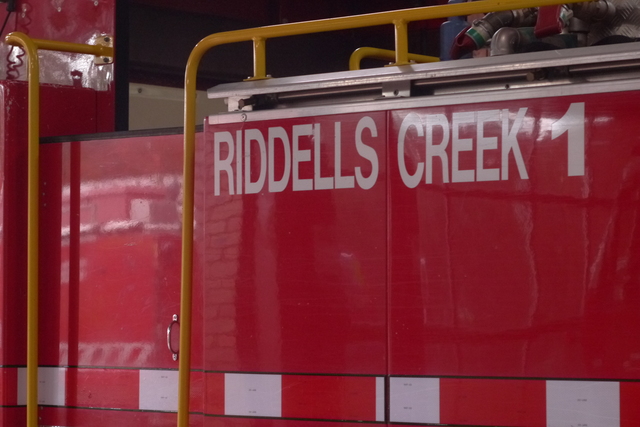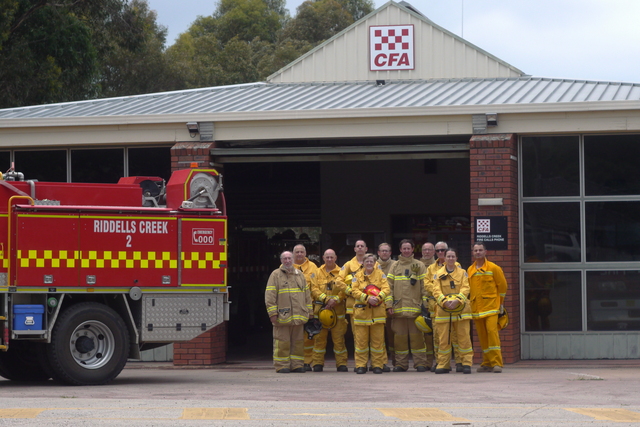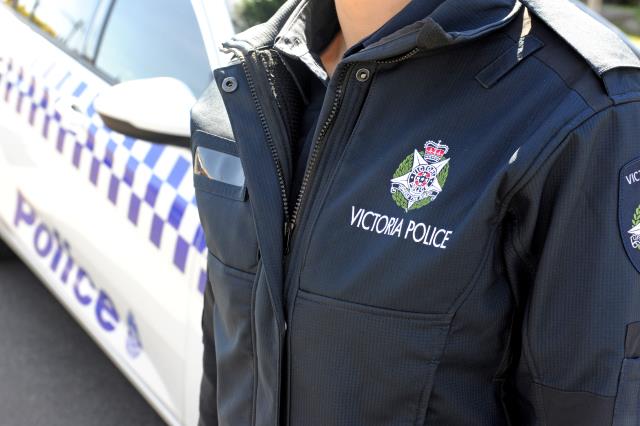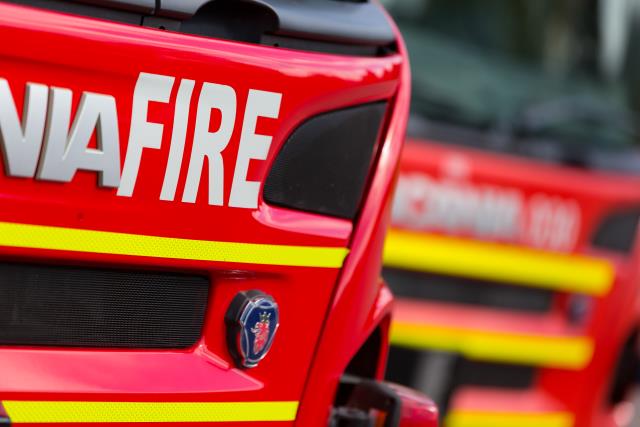PRECEDE: Founded in the early 1900s and known to be one of the first bushfire brigades in Australia, the Riddells Creek Fire Brigade has always played an active role in protecting and serving the bushfire-prone town and its surrounds. Visiting the brigade during a day of extreme heat and elevated fire danger, Star Weekly reporter Oscar Parry spoke with Riddells Creek CFA volunteers about bushfire preparation and the unique role of country fire brigades.
The Riddells Creek Fire Brigade was first formed in 1904 after a public meeting called by Walter J. Smith from Smith’s Nursery, with no specific incident known to have inspired the meeting.
Back then, firefighting equipment was basic, where brigade members swatted out fires using branches from gum trees and beaters – a stick with a piece of wet canvas attached.
Brigade captain Gill Metz has been involved with the brigade for 25 years.
She said the brigade was originally formed out of a community need, because without a united effort, fires could not be contained.
This community spirit remains strong in the brigade today.
“For us, being on the urban fringe, we’re very much about needing to be in our community and work with our community to help them be safe,” she said.
“We make sure that we are embedded in our community … you need to become trusted – we run the Anzac dawn service for the community so they know us, and it opens up those conversations to be had. The same [with] doing the Royal Children’s Hospital Appeal, it’s all about being in the community and part of it.
“We support the school in doing things, we support the kinders, we work with the neighbourhood house … we’re very much involved with the community.”
Riddells Creek Brigade firefighter David Thompson, a member of the brigade for 38 years, said this community spirit often extends beyond just Riddells Creek.
“All of [our] preparation is done with neighbouring brigades, so that we’re all working to a bigger picture … it’s not in isolation, and we have our things that we need to concentrate on, but it all has to fit into a bigger picture,” Mr Thompson said.
Firefighter preparation for the bushfire season begins in September, where brigade members complete skills maintenance training including burnover drills, tree hazard education, and several other training exercises.
Mr Thompson said that in country brigades, there is still a sense of self-preservation and necessity among landowners – who are often brigade members themselves.
“You still see a lot of brigades today where a lot of it is farmers … it’s all those farmers coming together and saying ‘we’ve got to stop this fire’, and they will come from all their farms … to the one farm where the fire is and put it out because they don’t want it spreading to their crops,” he said.
“It’s exactly the way it still happens in places like Mallee and the Wimmera and the grazing countries now out to the west and the north … they’re using their own trucks, they will go out and they will just get out in their own trucks and they will put the fire out, because they’re just looking after each other and themselves … it still goes on [today].”
Ms Metz said joining a fire brigade offers a chance to learn new skills, make friends, and “do things that you never thought you would”.
“We are always looking for volunteers from the community, because we need succession planning … some of us have been around in the brigade for a long time, but you need to get people coming continuously in,” she said.
“To grow those skills … it’s not just about getting that qualification, it’s about that experience. Being able to read what’s happening on a bad day, being able to read what’s happening at an incident. Every fire is a bit different.”
Mr Thompson said gaining this bushfire sense is like “an art form on top of a science”.
Ms Metz said preparing a bushfire plan, downloading and setting up the VicEmergency app with alerts, and learning what you can and cannot do during summer are some of the ways community members can prepare for bushfires.
She said the brigade can offer support with these and regularly hosts community education sessions – including roadside fire preparation information meetings.
“It doesn’t matter whether you’re [on] a bush block, a farm block, or in town. Everybody has to have their own plan for fire,” she said.
The brigade encourages expressions of interest from community members interested in joining, with an application form available on the CFA website.

